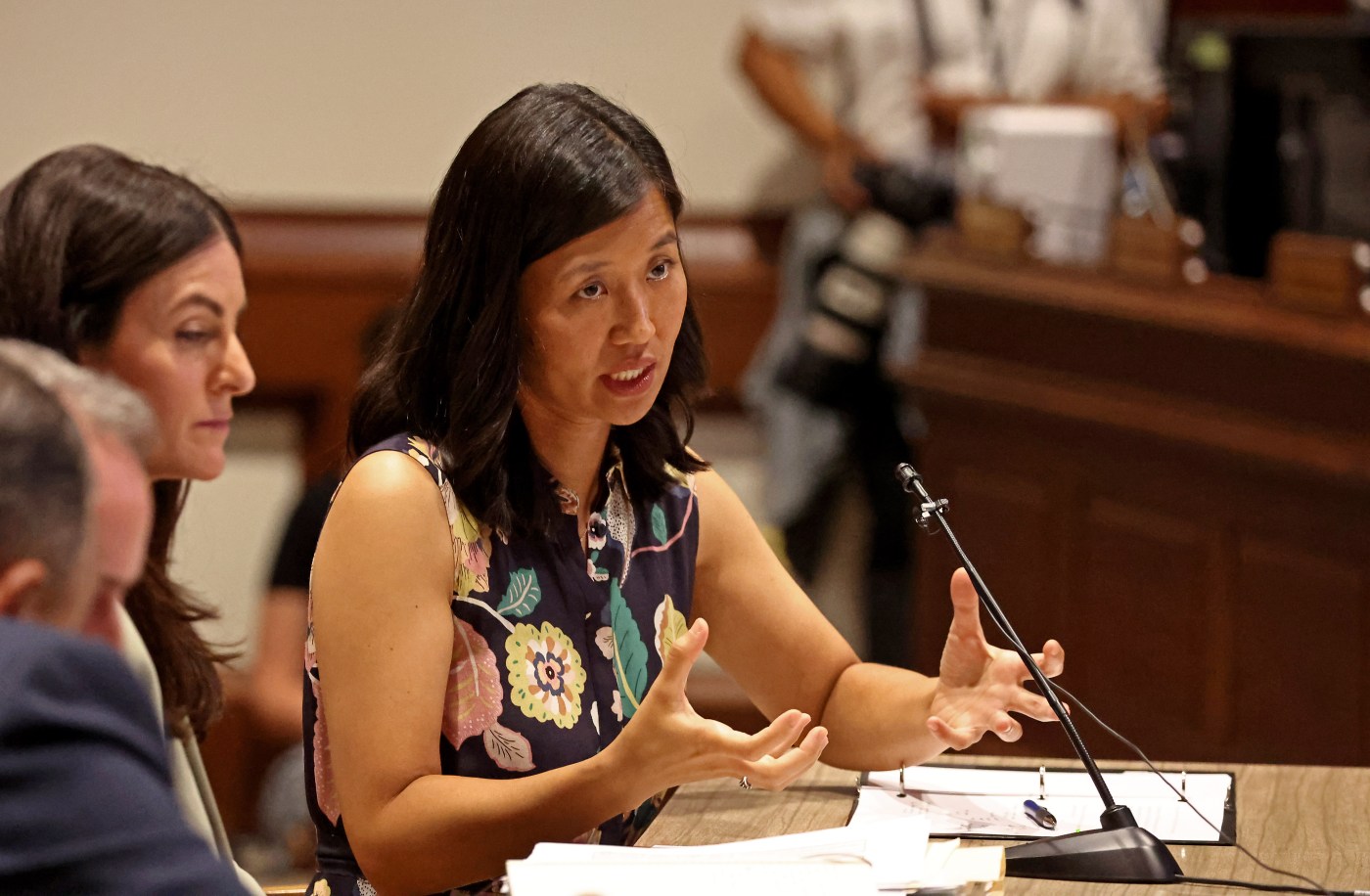
Boston Mayor Wu’s plan to increase commercial tax rates to come before Massachusetts House for vote
The state House of Representatives may approve Boston Mayor Michelle Wu’s controversial plan to increase commercial tax rates today with changes that provide protections for small businesses and reduce the requested length and scope of the proposal.
The bill, which the mayor says is a necessary measure to stave off what would otherwise be a hefty residential tax increase, was advanced out of the powerful House Ways and Means Committee on Tuesday and will be put to the House for a vote later in the day, state Rep. and committee Chair Aaron Michlewitz said in a statement.
“As a result of conversations with Mayor Wu, the mayor has agreed to sign an executive order once the legislation is signed into law limiting the length and scope of the proposal,” the North End Democrat said.
“By mitigating a potential massive increase in residential property taxes, and by providing much needed support for our small businesses, this plan is a balanced approach that will allow the City of Boston to address any potential revenue issues, thus allowing the city to continue to thrive while weathering the imminent financial storms ahead,” he said.
The new drafted language would provide up to $45 million in tax protections over three years for small businesses employing 50 people or less, or those who have an annual revenue of less than $5 million, Michlewitz said.
It would also provide tax relief to small businesses by extending the personal property tax exemption, which excludes a portion of a qualifying owner’s property value from taxation, to commercial property owners, Michlewitz said.
Such an exemption is currently offered only to homeowners in Boston and the City Council advocated for the relief to be extended to small businesses, given the concerns that higher taxes would be passed down to them through higher rents imposed by their landlords, the building owners.
Mayor Wu also agreed to new terms that limit the requested length of her proposal, from five to three years, and how much of the city’s tax burden can be shifted from the residential to commercial sector, beyond what is currently allowed by state law.
State law limits the maximum shift to 175%, and while the mayor had been seeking a temporary limit increase to up to 200%, she agreed to sign an executive order that will impose a shift no more than 190%, Wu said in a statement.
“After thoughtful conversations with legislators and stakeholders across Boston’s neighborhoods and business community, we are pleased to see an updated proposal advance that incorporates feedback received at the city and state levels,” Wu said.
“As Boston addresses economic shifts impacting cities around the country, it is imperative that residents in this far too expensive housing market are protected from drastic spikes in housing costs. And it is also critical for local small businesses to receive support and protection in this time of uncertainty.”
Wu said she plans to direct the city’s chief financial officer to seek appropriations of up to $15 million in each of the three years her tax plan would be in effect, “to mitigate any potential impact of this legislation on small businesses.”
Related Articles
Boston’s Mass and Cass plan failed because it put housing before treatment, Massachusetts senator says
Boston City councilors, state senator seek emergency declaration over Steward closures
It’s ‘decimating our community’: Patients and staff on edge as Carney closure looms
Massachusetts Senate OKs bill to create 264 new liquor licenses in Boston: ‘Long overdue’
Boston eying new plan to tackle revived Mass and Cass drug market: ‘We’re in a very tough spot’
The mayor also committed to expanding the property tax exemption to support small businesses once authorized by state law, should the Legislature choose to approve the newly amended plan.
“With these provisions to support small businesses and clarity on the scope and duration of this measure, Boston will effectively protect residents across every neighborhood and support our economy and local businesses,” Wu said.
The mayor has stated that taxes could increase by double-digits next year without the plan — by roughly 16.5% – due to declining commercial property values that are expected to lead to a loss of commercial tax revenue, thereby pushing more of the tax burden onto the residential sector.
While well-received by residents who testified that they could be pushed out of Boston if their taxes were to increase, the plan has been panned by business leaders, industry groups and fiscal watchdogs, who say that it will harm the economy over the long term, by further deteriorating commercial values.
Critics have said the mayor should have looked to cut spending instead, pointing to a city budget that grew by 8% this fiscal year, and make use of the city’s roughly $1 billion in reserves.

